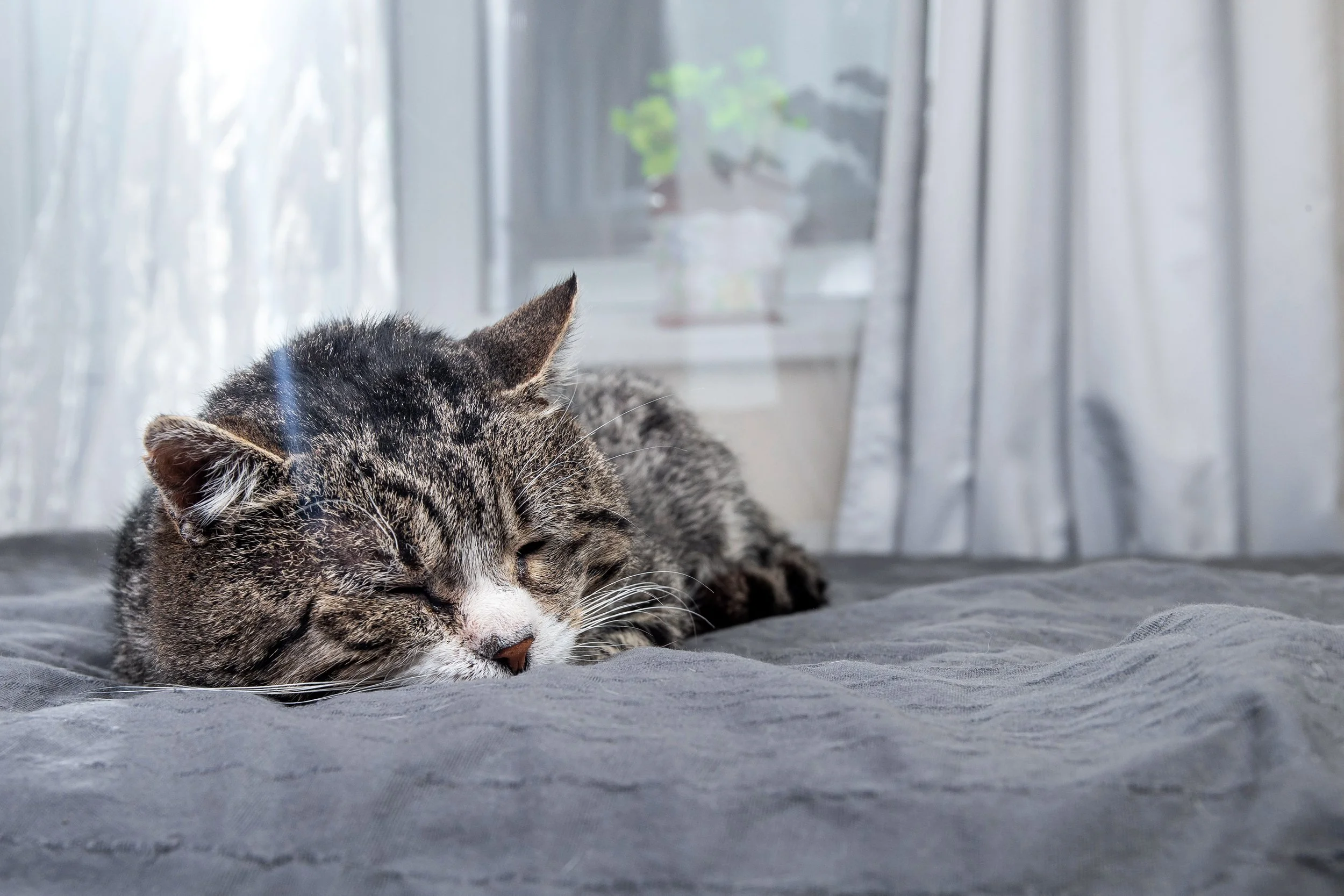Summer and Senior Cats: What You Need to Know
As the temperatures rise and the sun shines brighter, many of us look forward to the joys of summer – long days, outdoor adventures, and plenty of relaxation. But for senior cats, the summer season can bring a unique set of challenges that cat owners should be aware of. Older cats are often more vulnerable to heat, dehydration, and stress, making it important to take extra steps to keep them safe and comfortable during the hottest months of the year.
Why Summer Can Be Hard on Senior Cats
As cats age, their bodies become less efficient at regulating temperature. This means that what might feel like a warm, pleasant day to you could feel overwhelmingly hot to an elderly feline. Additionally, health issues that are common in senior cats – such as arthritis, kidney disease, or heart problems – can be exacerbated by heat and dehydration.
Senior cats may also have lower energy levels and may not seek out cooler spots as actively as younger cats do, putting them at higher risk for overheating.
Signs of Heat Stress in Senior Cats
It’s crucial to be able to recognize the early signs of heat stress or heatstroke in your older cat.
Keep an eye out for:
Excessive panting or open-mouth breathing
Lethargy or weakness
Drooling
Red or pale gums
Vomiting or diarrhea
Wobbly or uncoordinated movements
If you notice any of these symptoms, move your cat to a cooler place immediately and contact your veterinarian. Heatstroke is a medical emergency and can be fatal if not treated promptly.
Keep Your Senior Cat Safe and Comfortable This Summer
1. Provide a Cool, Shaded Space – Make sure your cat always has access to a cool, shaded area indoors. Air conditioning or fans can help regulate the temperature and cooling mats or even a simple damp towel for them to lie on can make a big difference.
2. Fresh Water At All Times – Hydration is key! Ensure multiple bowls of fresh, cool water are available around the house. Some cats drink more when offered a pet water fountain, as the running water attracts them.
3. Limit Outdoor Time – If your senior cat enjoys supervised outdoor time, make sure it’s limited to the coolest parts of the day – early morning or evening – and never leave them outside during peak heat hours.
4. Groom Regularly – Brushing your cat can help remove excess fur and prevent mats, especially in long-haired breeds. Less fur means better airflow and cooler skin.
5. Monitor Activity Levels – Don’t overexert your older cat in the heat. Gentle play indoors during cooler hours is ideal. Pay attention to their energy and stop any activity if they seem tired or overheated.
6. Watch for Dehydration – Senior cats are more prone to dehydration, especially if they have kidney issues. Signs include sunken eyes, dry gums, and skin that doesn’t snap back when gently pinched. If you’re concerned, speak to your vet. If you don’t already, add wet food to their diet to help increase water intake.
7. Consult Your Vet – Summer is a good time for a quick wellness check, especially for older cats with chronic health conditions. Your vet can give personalized advice on how to help your cat stay comfortable through the season while they check your kitty to make sure they are overall in good health.
Extra Care Means Extra Comfort
Summer can be a wonderful time to bond with your senior cat, especially when you take a few extra steps to ensure they’re safe, comfortable, and happy. With the right care, even the oldest felines can enjoy the lazy, sunny days of summer right by your side.

